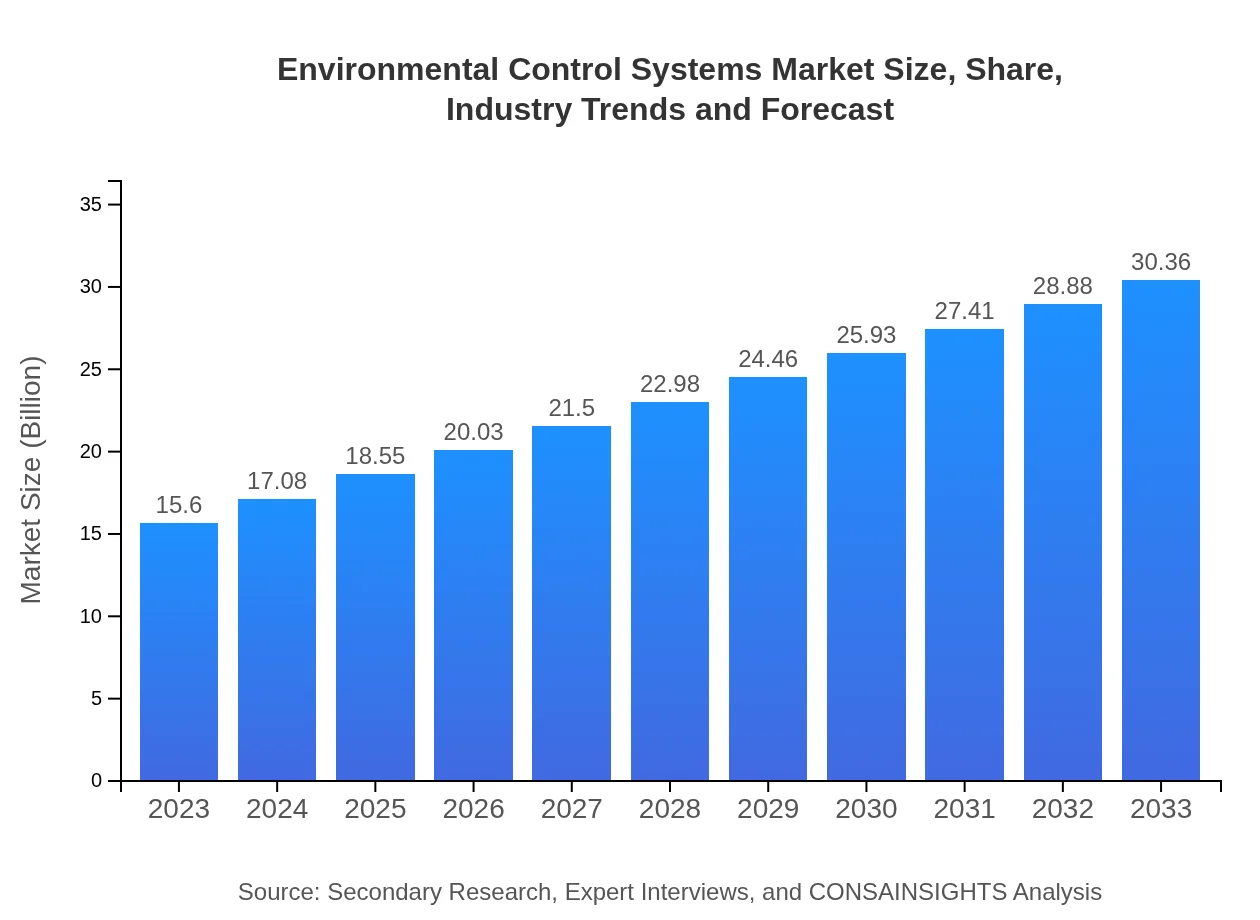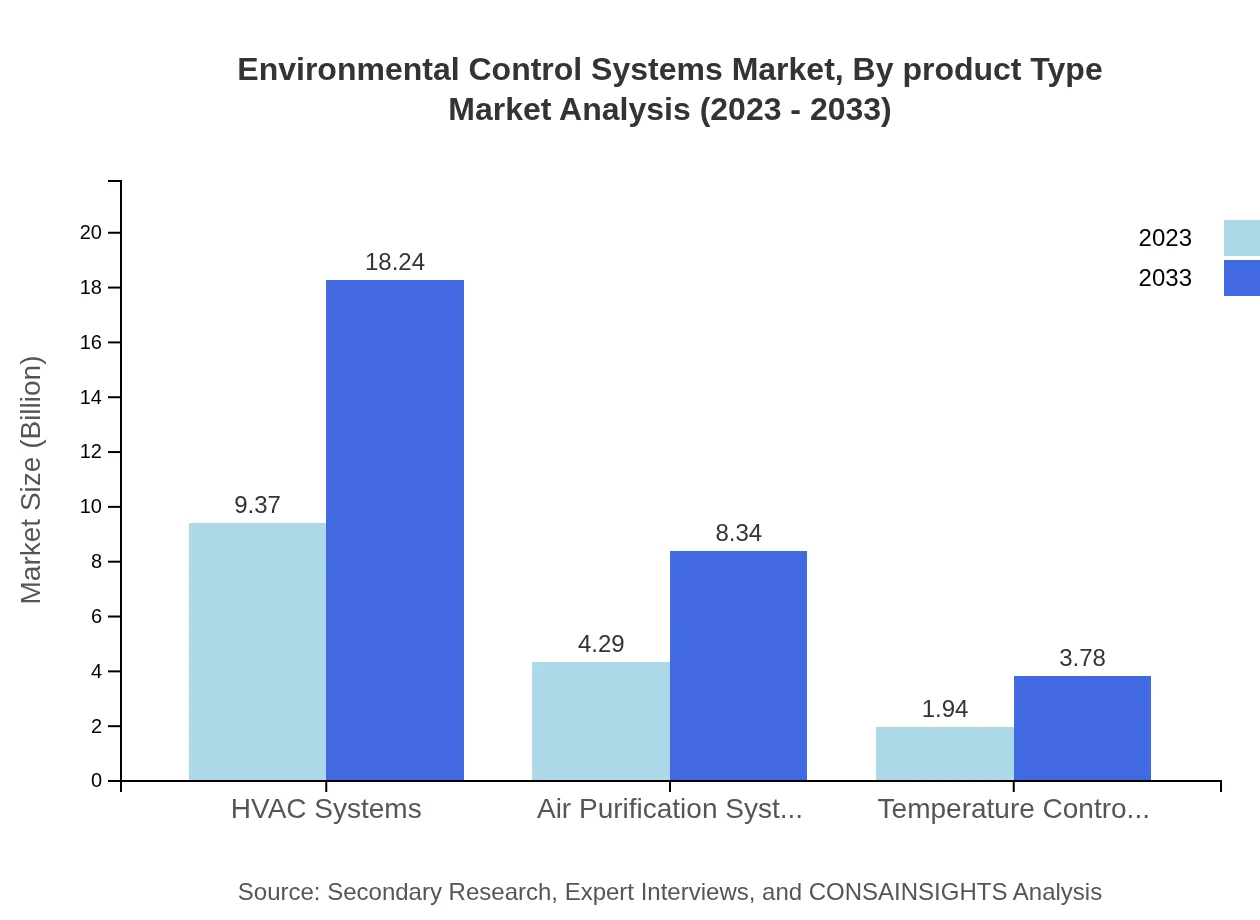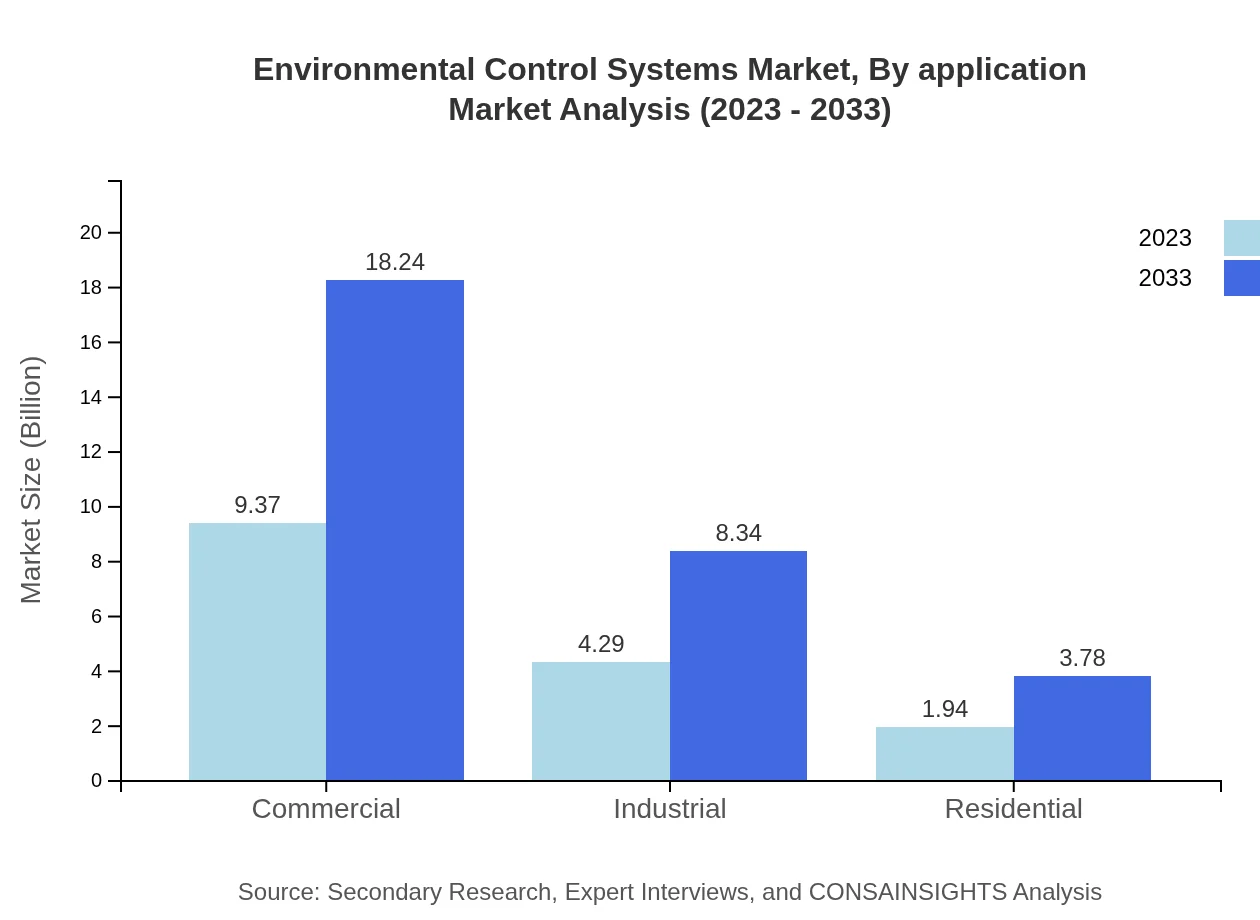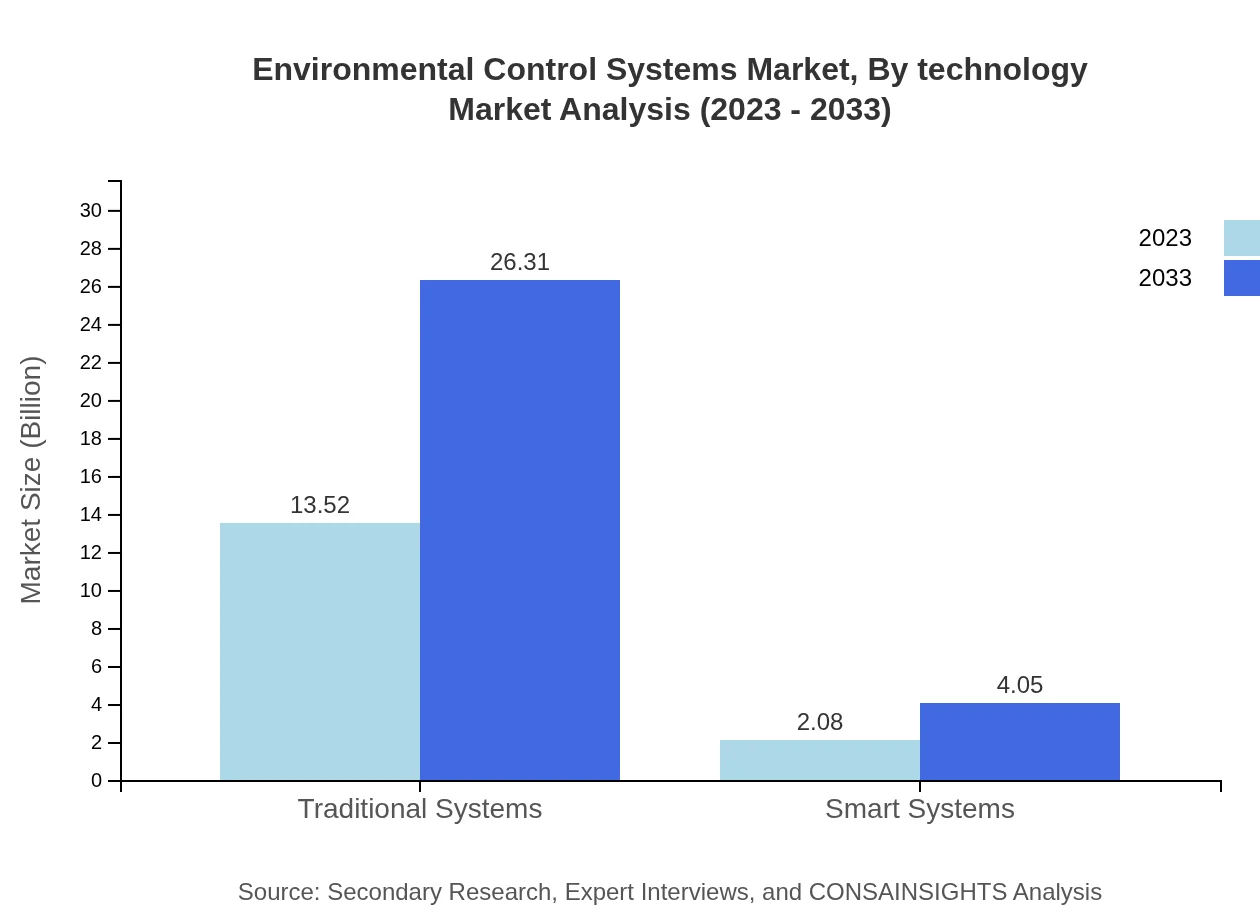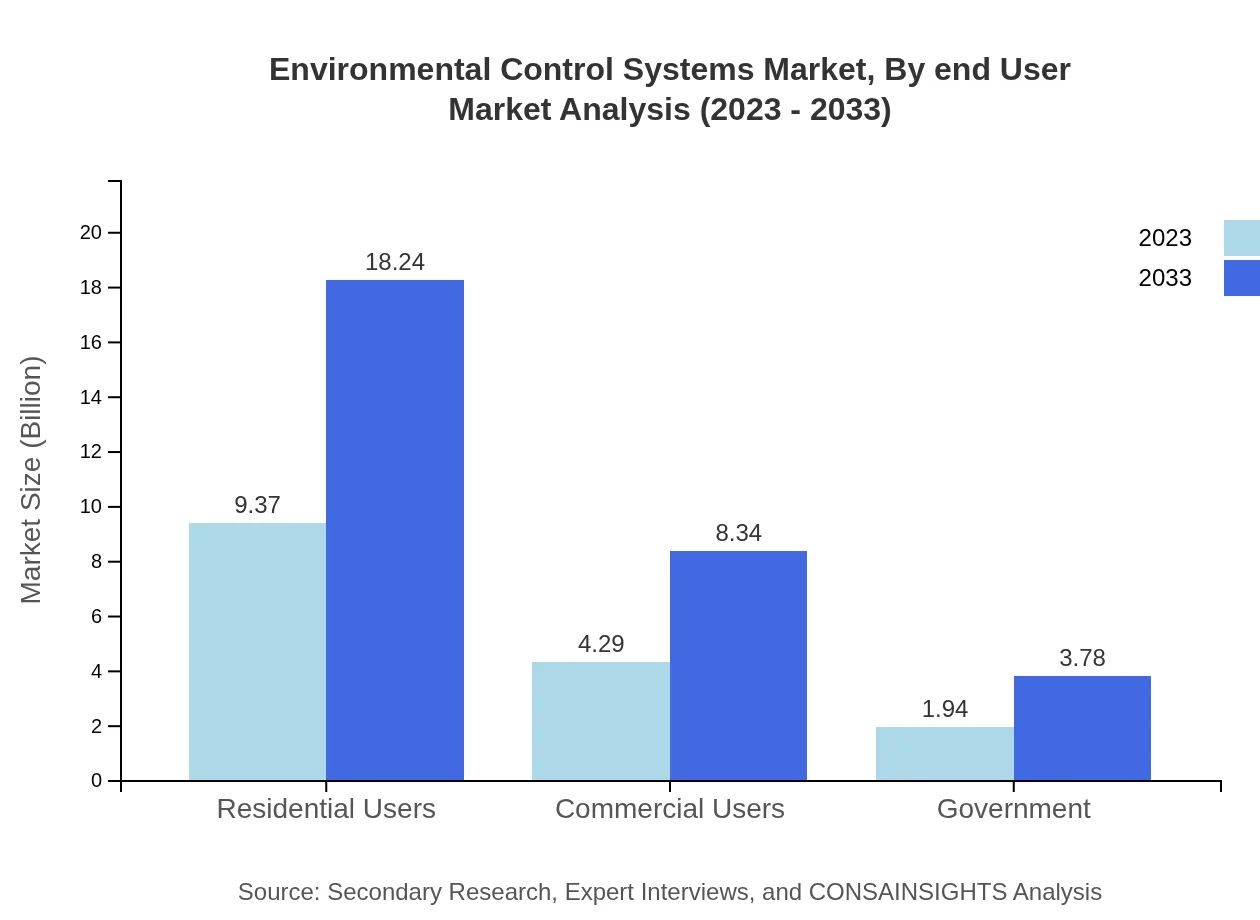Environmental Control Systems Market Report
Published Date: 22 January 2026 | Report Code: environmental-control-systems
Environmental Control Systems Market Size, Share, Industry Trends and Forecast to 2033
This report provides a comprehensive analysis of the Environmental Control Systems market, covering market size, segmentation, and regional insights from 2023 to 2033, along with trends, key players, and future forecasts.
| Metric | Value |
|---|---|
| Study Period | 2023 - 2033 |
| 2023 Market Size | $15.60 Billion |
| CAGR (2023-2033) | 6.7% |
| 2033 Market Size | $30.36 Billion |
| Top Companies | Johnson Controls, Trane Technologies, Carrier Global Corporation, Honeywell International Inc., Mitsubishi Electric |
| Last Modified Date | 22 January 2026 |
Environmental Control Systems Market Overview
Customize Environmental Control Systems Market Report market research report
- ✔ Get in-depth analysis of Environmental Control Systems market size, growth, and forecasts.
- ✔ Understand Environmental Control Systems's regional dynamics and industry-specific trends.
- ✔ Identify potential applications, end-user demand, and growth segments in Environmental Control Systems
What is the Market Size & CAGR of Environmental Control Systems market in 2023?
Environmental Control Systems Industry Analysis
Environmental Control Systems Market Segmentation and Scope
Tell us your focus area and get a customized research report.
Environmental Control Systems Market Analysis Report by Region
Europe Environmental Control Systems Market Report:
The European market is also poised for significant growth, expected to rise from $4.17 billion in 2023 to $8.12 billion by 2033. European nations are leading the charge in adopting stringent environmental policies, furthering the deployment of innovative environmental control technologies.Asia Pacific Environmental Control Systems Market Report:
The Asia Pacific region is experiencing notable growth in the Environmental Control Systems market, with a market size expected to reach $5.84 billion by 2033, up from $3.00 billion in 2023. Rapid urbanization and rising incomes drive investments in smart technologies and energy-efficient systems, particularly in countries like China and India, where air quality concerns are prominent.North America Environmental Control Systems Market Report:
North America currently holds the largest market share in the Environmental Control Systems industry, with a size of $5.48 billion in 2023 projected to grow to $10.66 billion by 2033. This growth is propelled by robust technological advancements and high consumer spending on quality living environments, spurred by regulatory standards focused on energy efficiency.South America Environmental Control Systems Market Report:
In South America, the Environmental Control Systems market will grow from $1.54 billion in 2023 to an estimated $2.99 billion by 2033. Factors boosting this growth include increased government initiatives to improve environmental standards and rising awareness among consumers regarding energy-efficient solutions.Middle East & Africa Environmental Control Systems Market Report:
The Middle East and Africa market size is projected to grow from $1.41 billion in 2023 to $2.75 billion by 2033. The demand in this region is fueled by increasing industrial activities and heightened awareness of health and safety regulations within major urban areas.Tell us your focus area and get a customized research report.
Environmental Control Systems Market Analysis By Product Type
In 2023, Residential Users dominate the Environmental Control Systems market with a size of $9.37 billion, and this segment is anticipated to maintain a significant share into 2033, growing to $18.24 billion. Commercial Users follow with a projection rising from $4.29 billion to $8.34 billion in the same period. Government initiative spending is also expected to create a more substantial market segment increasing from $1.94 billion to $3.78 billion. Traditional Systems continue to prevail in the market, while Smart Systems are emerging, indicating a transformational trend in consumer preferences.
Environmental Control Systems Market Analysis By Application
The application of HVAC systems forms the largest segment within Environmental Control Systems, projected to remain at a 60.09% market share from 2023 to 2033. Air Purification and Temperature Control Systems respectively represent 27.47% and 12.44% of shares in the current market, which are also expected to see increases in user adoption as environmental awareness grows.
Environmental Control Systems Market Analysis By Technology
The market's technology spectrum reveals a significant inclination towards smart systems which, despite their smaller size of about $2.08 billion in 2023, are expected to grow to $4.05 billion by 2033. Traditional systems remain dominant but this segment's growth is forecasted at a slower pace relative to innovative technologies, suggesting a pivotal shift towards integrated smart solutions.
Environmental Control Systems Market Analysis By End User
In terms of end-users, residential users maintain the largest market share at about 60.09%, illustrating strong consumer demand. Commercial sectors are also substantial, but governments are notably increasing their investments in environmental controls, projected to reflect a steady growth of up to 12.44% of the market by 2033.
Environmental Control Systems Market Trends and Future Forecast
Tell us your focus area and get a customized research report.
Global Market Leaders and Top Companies in Environmental Control Systems Industry
Johnson Controls:
A global leader in building technologies, Johnson Controls offers advanced HVAC systems and energy solutions that enhance sustainability and operational efficiency.Trane Technologies:
Specializing in climate control technologies, Trane focuses on innovative HVAC solutions that cater to both residential and commercial sectors.Carrier Global Corporation:
Carrier is recognized for its extensive portfolio of HVAC systems and air quality products, committed to enhancing living and working environments.Honeywell International Inc.:
A diversified technology company providing products and solutions in control systems, Honeywell works across various sectors to enhance environmental sustainability.Mitsubishi Electric:
Renowned for its advanced electric and HVAC products, Mitsubishi Electric is a significant player offering innovative solutions in environmental control systems.We're grateful to work with incredible clients.









FAQs
What is the market size of Environmental Control Systems?
The Environmental Control Systems market is valued at approximately $15.6 billion in 2023, with a projected CAGR of 6.7% through 2033, indicating robust growth driven by increasing demands for efficient climate control solutions.
What are the key market players or companies in the Environmental Control Systems industry?
The key players in the Environmental Control Systems industry include major corporations specializing in HVAC technology, air purification, and smart environmental solutions, which are instrumental in driving innovation and market growth.
What are the primary factors driving the growth in the Environmental Control Systems industry?
Key factors driving growth include rising urbanization, increasing awareness of environmental issues, technological advancements in energy-efficient products, and government regulations promoting sustainable energy solutions.
Which region is the fastest Growing in the Environmental Control Systems market?
The fastest-growing region in the Environmental Control Systems market is North America, projected to grow from $5.48 billion in 2023 to $10.66 billion by 2033, fuelled by technological adoption and a strong housing sector.
Does ConsInsights provide customized market report data for the Environmental Control Systems industry?
Yes, ConsInsights offers customized market reports tailored to the Environmental Control Systems industry, allowing clients to obtain specific insights and data aligned with their unique business needs.
What deliverables can I expect from this Environmental Control Systems market research project?
Clients can expect comprehensive reports, market analysis, competitive landscape assessments, regional insights, and forecast data, enabling informed strategic decisions in the Environmental Control Systems sector.
What are the market trends of Environmental Control Systems?
Current market trends include the shift towards smart systems, increased demand for air purification due to health concerns, and growing investments in energy-efficient technologies across residential and commercial sectors.

